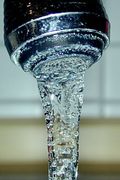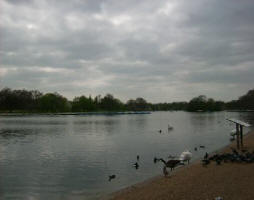 Jordan and Syria to discuss water sharing issues
Jordan and Syria to discuss water sharing issues
Jordan and Syria are scheduled to begin talks today on issues of common interest, with the sharing of water from the Yarmouk River Basin topping the agenda, according to a government official.
Meetings on cooperation in water issues between the two neighbors will be part of the Joint Jordanian-Syrian Higher Committee meetings, which will be held in Damascus next week, co-chaired by Prime Minister Nader Dahabi and his Syrian counterpart, Mohammad Otri.
Jordan Valley Authority Secretary General Musa Jamaani, who heads the Jordanian side at the Jordanian-Syrian Committee of the Yarmouk River Basin, is expected to leave for Syria today to prepare for the discussions over the outstanding water issues.
The study, which will be carried out jointly by Jordan and Syria, seeks to evaluate the quantity and quality of water resources in the Yarmouk River Basin, identify the causes of their depletion, and propose means to protect the basin from pollution and arbitrary pumping.
The study, which also aims to examine the economic impact of ongoing depletion of the basin's water sources, will take one year to complete and will be carried out by a Syrian-based public company for hydrological studies.
The Yarmouk River is a tributary of the Jordan River, originating in the southeastern slopes of Mount Hermon and forming a boundary between Syria and Jordan for nearly 40 kilometers before becoming the border between the Kingdom and Israel.
Jordan urged Syria several times to stop the cultivation of crops upstream and downstream on the Yarmouk River as the farming activity slows the river's water flow and storage at the Wihdeh Dam.
Under agreements signed between the two countries, Syria's share of water from the Wihdeh Dam, which is built on the Yarmouk River, is six million cubic metres (mcm) for agricultural purposes, provided that the dam reaches its full capacity of 110mcm. The quota decreases proportionately in accordance with the volume of storage.
But for the first time since its construction three years ago, the dam held only 18mcm by April, and thus Syria's share declined to 1mcm. The neighboring country, however, has been pumping more than its allocated share to water vegetables planted all the way from downstream of Wihdeh Dam to Al Raqqad Valley, located on the banks of the Yarmouk River.
| Contact information |
Hana Namrouqa
|
|---|---|
| News type | Inbrief |
| File link |
http://www.jordantimes.com/?news=20196 |
| Source of information | Jordan Times |
| Subject(s) | FINANCE-ECONOMY , HYDRAULICS - HYDROLOGY , POLICY-WATER POLICY AND WATER MANAGEMENT , PREVENTION AND NUISANCES POLLUTION , RISKS AND CLIMATOLOGY , WATER DEMAND |
| Relation | http://www.semide.net/topics/swrm |
| Geographical coverage | Jordan, Syria |
| News date | 06/10/2009 |
| Working language(s) | ENGLISH |
 you are not logged in
you are not logged in





